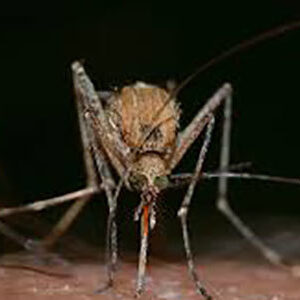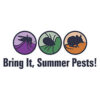
West Nile Virus Confirmed in Spokane County Mosquitoes, Horses
For more information contact Kim Papich, SRHD Public Information Officer (509) 324-1539 or kpapich@srhd.org
SPOKANE, Wash. – Spokane Regional Health District (SRHD) today reported laboratory confirmation of West Nile virus in a mosquito sample from Spokane County. Five local horses were also confirmed to have the virus this month.
Washington State Public Health Laboratory confirmed the positive mosquito sample after it was submitted by Eastern Washington University. The university acts as a surveillance partner in Spokane County for Washington State Department of Health.
“Standing water is a breeding ground for mosquitoes that may be infected with West Nile virus,” said Dr. Bob Lutz, SRHD health officer. “Eliminating all standing water where mosquitoes breed can be difficult, but during mosquito season people can afford themselves a level of protection by draining anything around the home that holds water, as well as preventing exposure to bites.”
To avoid mosquito bites, remember to ‘drain, dress and use repellent’:
- Reduce mosquito breeding sites around your home. Twice weekly, drain and routinely empty anything that holds water, such as gutters, pet bowls, tires, bird baths, etc. Keep water moving in ornamental ponds by recirculating water or by installing a fountain.
- Dress in long-sleeved shirts and long pants where and when needed.
- Use properly fitted door and window screens, and stay indoors around dawn and dusk.
- If outdoors, use a mosquito repellent when outdoors in areas where mosquitoes are active.
Although less than 1 percent of people who become infected with West Nile virus will develop severe illness, some are at higher risk of severe disease, including those who are 60 years of age or older, those with compromised immune systems, or those with underlying medical conditions.
Symptoms of West Nile virus include headache, fever, neck discomfort, muscle and joint aches, swollen lymph nodes, and a rash, though up to 80 percent of people will experience no symptoms. Symptoms usually develop two to 14 days after being bitten by an infected mosquito. Those with more severe symptoms—such as severe headache or confusion—should seek medical attention.
Since identification of West Nile virus in Washington state in 2006, Spokane Regional Health District has investigated five confirmed or probable human cases—three of which were likely acquired in Spokane County. Spokane’s last reported human case of West Nile virus was in August 2016.
Washington State Department of Health offers maps and statistics to indicate where West Nile virus is occurring elsewhere in the state. Nationally, a total of 45 states and the District of Columbia have reported West Nile virus infections in people, birds, or mosquitoes in 2017.
Anyone with questions about human-acquired virus should speak to their health care provider.
There is currently no vaccine available for humans, yet there is one for horses. Specific to horses, approximately one in three horses that become ill with the virus will die. Washington Animal Disease Diagnostic Lab confirmed the virus in Spokane’s five horses—all but one of which are expected to recover. Individuals with horse-specific questions should speak with their veterinarian about West Nile virus vaccine or seek more information from the WSDA website.
The health district also offers its campaign Bring It, Summer Pests!, which features simple landscaping tricks and tips to protect a home’s exterior, giving individuals useful tools in confronting mosquitos and other summer pests and their associated diseases.
If a resident finds a dead bird, they should not handle it with their bare hands. Information about dead birds, West Nile virus prevention, and mosquito repellents can all be found at www.srhd.org searching “West Nile virus.” More information is also available on the Washington State Department of Health’s (DOH’s) West Nile virus information line, 1-866-78-VIRUS (1-866-788-4787), and prevention tips on DOH’s West Nile virus website.
Become a fan of the health district on Facebook to receive local safety and wellness tips. You can also follow us on Twitter @spokanehealth.

